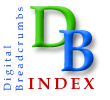
| Search |
 |
||||||||
| Words | Images | Audio | Scholar | ||||||||
|
||||||||
|
We begin this inquiry with questions about who has a stake in the way university scholars (at various levels) do research in online spaces. Certainly, librarians and data managers have a stake in understanding and guiding the acquisition of research materials in online spaces. Writing studies teacher-scholars do, too, in recognizing the ways in which online research practices can connect to composing processes. And teachers, in all disciplines, have a stake in understanding how their students access and use digital resources. Finally, researchers themselves--undergraduates, graduate students, and faculty--all have a stake in understanding how digital research works in different contexts and in developing "best practices" for effective research. There continues to be a great deal of interest in understanding and evaluating online research practices. The Pew Internet and American Life Project (Fallows, 2005), for example, has focused a great deal of attention on Internet search practices in general, as has scholarly work in a number of disciplines; for example, see Jansen (2005) and Topi and Lucas (2005). However, we believe that there are gaps in both the existing research and in the perspectives that shape how research into these practices is conducted. To address these gaps, we have begun a project that seeks to examine digital research practices in ways that both support current research and offer alternate views. We call for examining the ways in which researchers actually use online resources for scholarly projects rather than lamenting how these researchers are not following prescribed models of efficient, purposeful online research. We, in other words, seek to consider the value of researchers' existing practices. In this early research, we find that for the participant-researchers in this study:
For the purposes of this project, the researchers we study are students (both undergraduates and graduate students) conducting research for academic work--for example, assignments for courses or long-term research projects such as dissertations. Our focus, in other words, is to examine online research methodologies that extend beyond looking up airfare prices or concert tour schedules, although these activities also constitute a certain (and important) kind of research in online spaces. The lament that we describe on the following page, however, arises from perceptions of students' misuse of online spaces for academic work. |